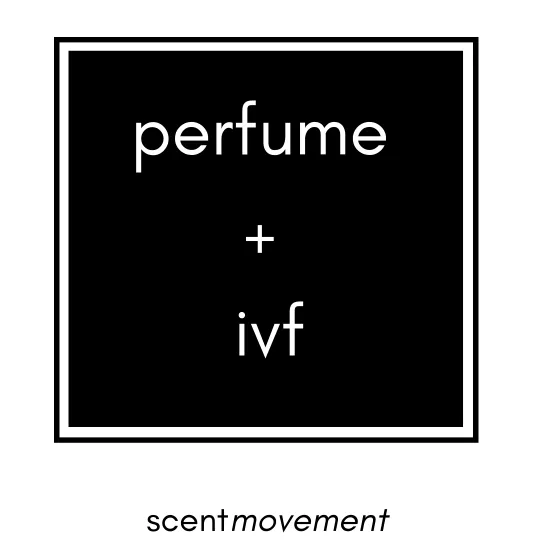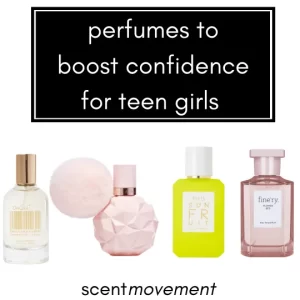
Let’s start with a head-scratcher. Why would something as seemingly innocuous as perfume be banned in an IVF clinic? Well, folks, you might find this surprising, but there’s a method to the madness. A stroll down this scented lane could reveal some astounding facts about the interplay between fragrance and fertility treatments. So, shall we embark on this intriguing journey together?
IVF, or In Vitro Fertilization, as many are aware, is a complex process. It’s a delicate dance of science and nature, where even the minutest factor could potentially influence the outcome. You may be wondering, how can a whiff of perfume have an impact on this intricate procedure? Well, the answer lies in the composition of the perfume itself.
Perfumes, as beautifully scented as they are, contain a host of chemicals. The main culprit here is a group known as phthalates. These are a family of chemicals used not only in perfumes but also in a wide array of products such as plastics, cosmetics, and even food packaging. But what’s the problem with phthalates, you may ask? Well, they are endocrine disruptors. This means they have the potential to mess up the body’s hormonal balance, which could be detrimental to the delicate process of IVF.
Studies have indicated that phthalates can affect reproductive health, leading to reduced sperm quality in men and a potential decline in fertility in women. Therefore, it is no surprise that IVF clinics, in an attempt to control all possible external factors, would ban perfumes.
We often forget that, in the IVF process, embryos are handled outside the human body. This means they are directly exposed to the environment and, consequently, are susceptible to any contaminants present. If a person wearing a perfume or a scented product enters the lab, there’s a risk that these chemicals could interfere with the embryo’s development.
Having understood the possible risks perfumes pose, it’s clear why IVF clinics put stringent regulations in place to limit exposure to these chemicals. What are these precautions, you ask? Let’s delve into it.
The primary step is to create a controlled environment that limits exposure to harmful chemicals, including those found in perfumes. High-quality air filtration systems are used to maintain the purity of the air inside the lab. Staff and patients are advised against wearing perfumes, scented lotions, or any products containing phthalates.
Patients are informed about these regulations well in advance of their appointments. They are educated about the reasons behind these regulations and are given guidance on what products to avoid.
Regular checks are conducted to ensure the air quality inside the lab is maintained. Any signs of contamination are quickly addressed to avoid any potential risk to the embryos.
In the wake of growing awareness about the potential hazards of conventional perfumes, there’s been a significant shift towards ‘clean perfumes’. But, what exactly are these, and how do they fit into the IVF context?
Clean perfumes are a relatively new breed in the fragrance industry. These products steer clear from harmful synthetic ingredients, opting instead for natural, non-toxic, and often organic components. They avoid potential endocrine disruptors such as phthalates, aiming to offer a safer, healthier alternative to traditional fragrances.
You may be wondering, Can I wear clean perfumes when I visit the IVF clinic? It’s a valid question. In theory, clean perfumes, being free from phthalates and other harmful chemicals, should pose no risk to fertility treatments. However, IVF clinics generally advise against wearing any type of perfume, clean or otherwise.
Why so? Well, the reason is twofold. First, even though clean perfumes are made with non-toxic ingredients, they may still contain allergens or substances that could potentially cause sensitivity reactions in some individuals. Secondly, despite the ‘clean’ label, not all clean perfumes are created equal. The lack of industry-wide standardization means that one brand’s ‘clean’ may not be as clean as another’s.
Clean perfumes are indeed a step in the right direction, fostering a more mindful and health-conscious approach to fragrance. However, when it comes to IVF treatments, it’s still best to play it safe and avoid wearing any perfume to the clinic. After all, when the stakes are as high as bringing a new life into the world, erring on the side of caution is never a bad idea.
So, next time you reach for your bottle of perfume before heading to the IVF clinic, you might want to reconsider. Who knows, a small sacrifice today could result in the sweetest fragrance of life tomorrow.
Perfume is banned in IVF clinics due to the potential harmful effects of chemicals, particularly phthalates, present in them. These chemicals can disrupt hormonal balance and may negatively affect fertility and embryo development.
Yes, generally all products that could release potentially harmful chemicals into the air, including scented products like perfumes, lotions, and air fresheners, are banned in IVF clinics.
Yes, numerous studies have found a correlation between high phthalate levels and reduced fertility in both men and women.
IVF clinics create a controlled environment with air filtration systems, advise against wearing scented products, and conduct regular checks to maintain the air quality.
Yes, patients are asked not to wear perfumes or any other scented products when visiting the IVF clinic. They are also educated about why these rules are in place.
Not all perfumes are harmful, but many contain phthalates, which have been linked to decreased fertility. Hence, it’s better to err on the side of caution and avoid them during fertility treatments.
It’s fascinating, isn’t it? The way something as seemingly harmless as perfume could potentially play a role in the success or failure of an IVF treatment. It’s a testament to the intricate dance between the human body and its environment, and the lengths to which clinics will go to ensure the best possible conditions for successful treatment. After all, when it comes to the creation of life, every little bit counts.

If you’re looking to boost your teen’s confidence, check out these perfumes.